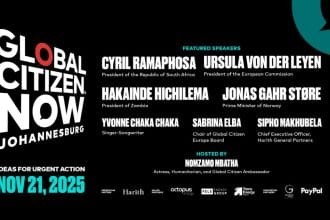The MK Party, a relatively new formation in South African politics, has been generating buzz ahead of upcoming elections. With rising public disillusionment with established parties, many wonder if the MK party has the potential to shake up the political landscape.
Understanding the MK Party
Origins: The MK Party is a breakaway faction from a larger, more established party. This split indicates potential internal challenges for the MK Party but also suggests a fresh approach with less historical baggage.
Platform: The MK Party’s platform needs to be examined. What are their primary stances on issues like economic development, service delivery, and combating corruption? These are major concerns for South African voters.
Leadership: Who leads the MK Party? Do they have the experience, charisma, and public trust to attract voters? New faces might offer an alternative, but they need to prove their competence.
Factors Affecting the MK Party’s Success
Public Discontent: South Africa faces numerous socio-economic challenges. If the MK Party can tap into widespread voter dissatisfaction with the status quo, they might gain significant support.
Grassroots Mobilisation: Success for smaller parties often rests on their ability to mobilise voters at the grassroots level. Can MK build a strong network of supporters and volunteers?
Competition: South Africa’s political landscape is crowded. The MK Party needs to differentiate itself from established parties as well as other new movements.
Could the MK Party Be a Surprise Contender?
It is too early to definitively say whether MK will be a serious threat in upcoming elections. However, they could become a contender if they:
- Articulate a clear vision: Present voters with a well-defined platform that resonates with their concerns.
- Build a strong base: Mobilise communities and create a dedicated following.
- Offer something unique: Position themselves as a genuine alternative to established parties.
The ANC and MK Party: A Fractured Relationship
The MK Party’s emergence stems directly from a split within the ruling African National Congress (ANC). Understanding this dynamic is crucial to assessing the MK Party’s chances as a contender.
Roots of Division: The ANC has experienced increasing factionalism in recent years. The MK Party’s formation likely reflects specific ideological differences or power struggles within the larger party. It’s essential to investigate the precise reasons for this split.
Competing Ideologies? Does the MK Party offer a meaningfully different approach to governance than the ANC? Or is the split mainly driven by personality clashes and internal rivalries?
Loyalty and Legacy: Umkhonto we Sizwe (MK) was the armed wing of the ANC during the fight against apartheid. The MK Party likely draws its name from this history. This creates a complex situation:
- Will former MK veterans be drawn to the new party out of loyalty?
- Can the MK party tap into the ANC’s legacy of struggle, or will they be seen as diluting it?
ANC Legal Action Against the MK
In recent news, the ANC has taken the IEC to court over the registration of the MK party with a name and logo resembling that of the uMkhonto weSizwe Military Veterans Association (MKMVA). The MKMVA was established by the ANC after disbanding its armed wing, uMkhonto weSizwe in 1991.
In an interview outside the Durban High Court on Tuesday where the abovementioned case was postponed to March 27, an irate Visvin Reddy warned of anarchy and riots should the MK party be prevented from contesting the elections. Reddy is a leader of the uMkhonto weSizwe Party in KwaZulu-Natal. He said:
“You don’t have the trademark on this MK logo so what gives you the right to claim that MK belongs to you? You have no chance in court, but we are sending a loud and clear message that if these courts, which are sometimes captured, try to stop the MK there will be anarchy in this country. There will be riots that have never been seen in this country. No South African will go to polls if MK is not on the ballot.”
Implications for the ANC and MK Party
Weakened ANC? The MK Party could significantly harm the ANC by siphoning off votes and support, especially in areas where dissatisfaction with the ANC runs high.
Potential for Alliances: Smaller parties often form coalitions or alliances. It’s worth monitoring whether the MK Party might join forces with other opposition parties to enhance its influence.
ANC Response: How the ANC reacts to this breakaway faction matters. Will they try to suppress the MK Party, downplay their significance, or attempt reconciliation? Their strategy could be revealing.
Related: Who is the MK?
Key Questions:
- To what extent does the MK Party represent a genuine shift in policy focus compared to the ANC?
- Can the MK Party overcome the ‘breakaway’ stigma and be seen as a legitimate alternative?
- In which regions or demographics is the MK Party likely to find the most support?












